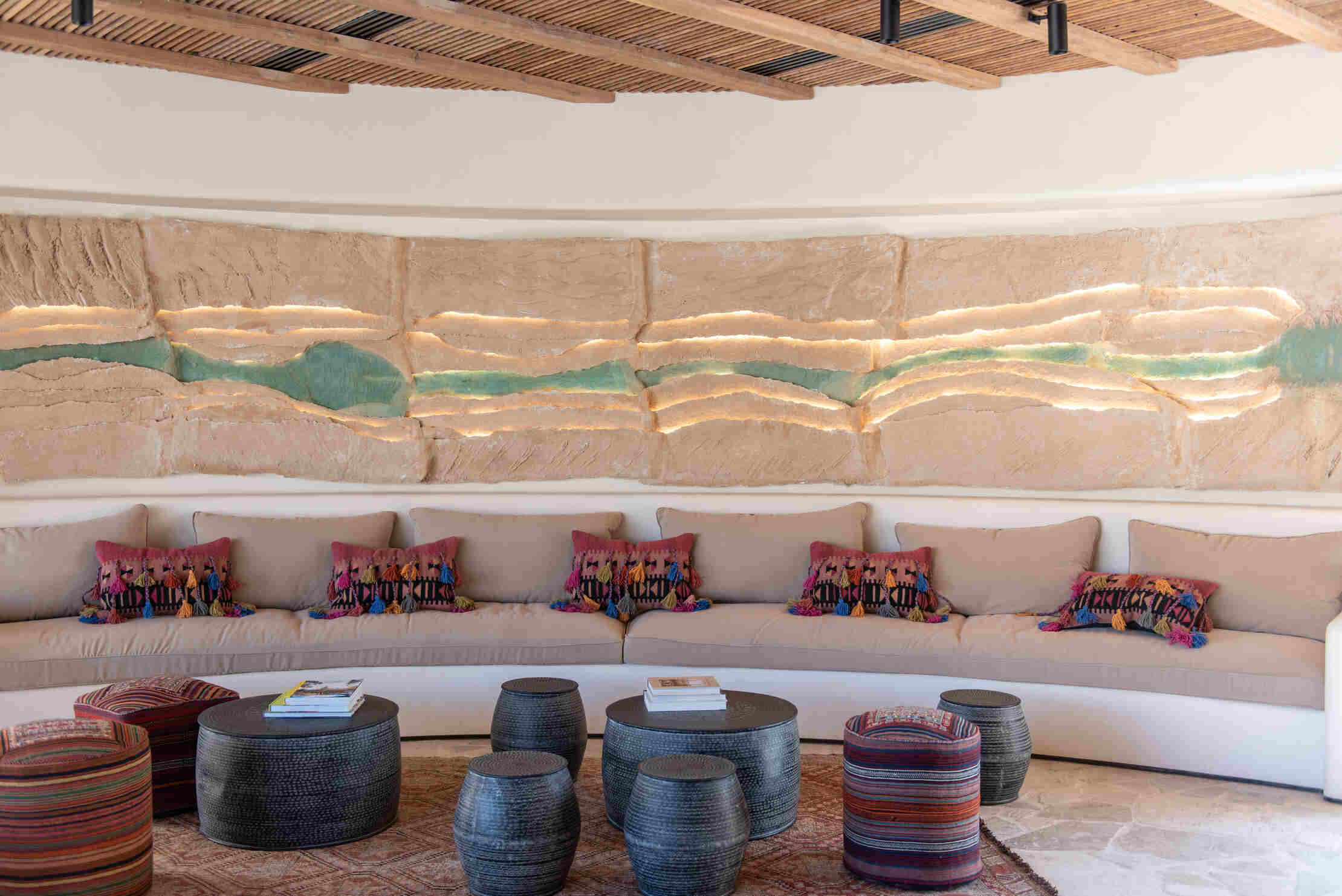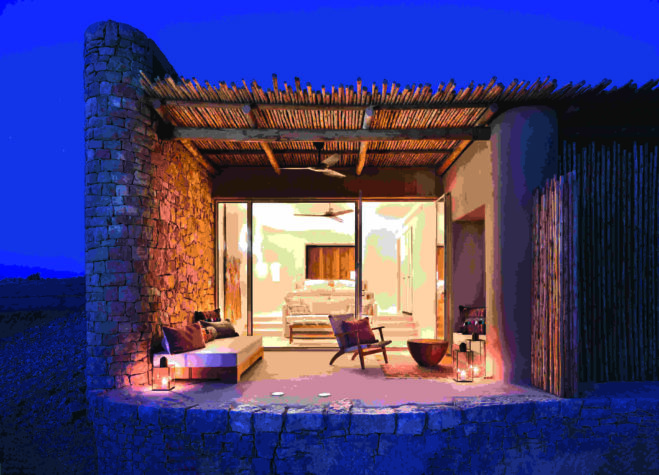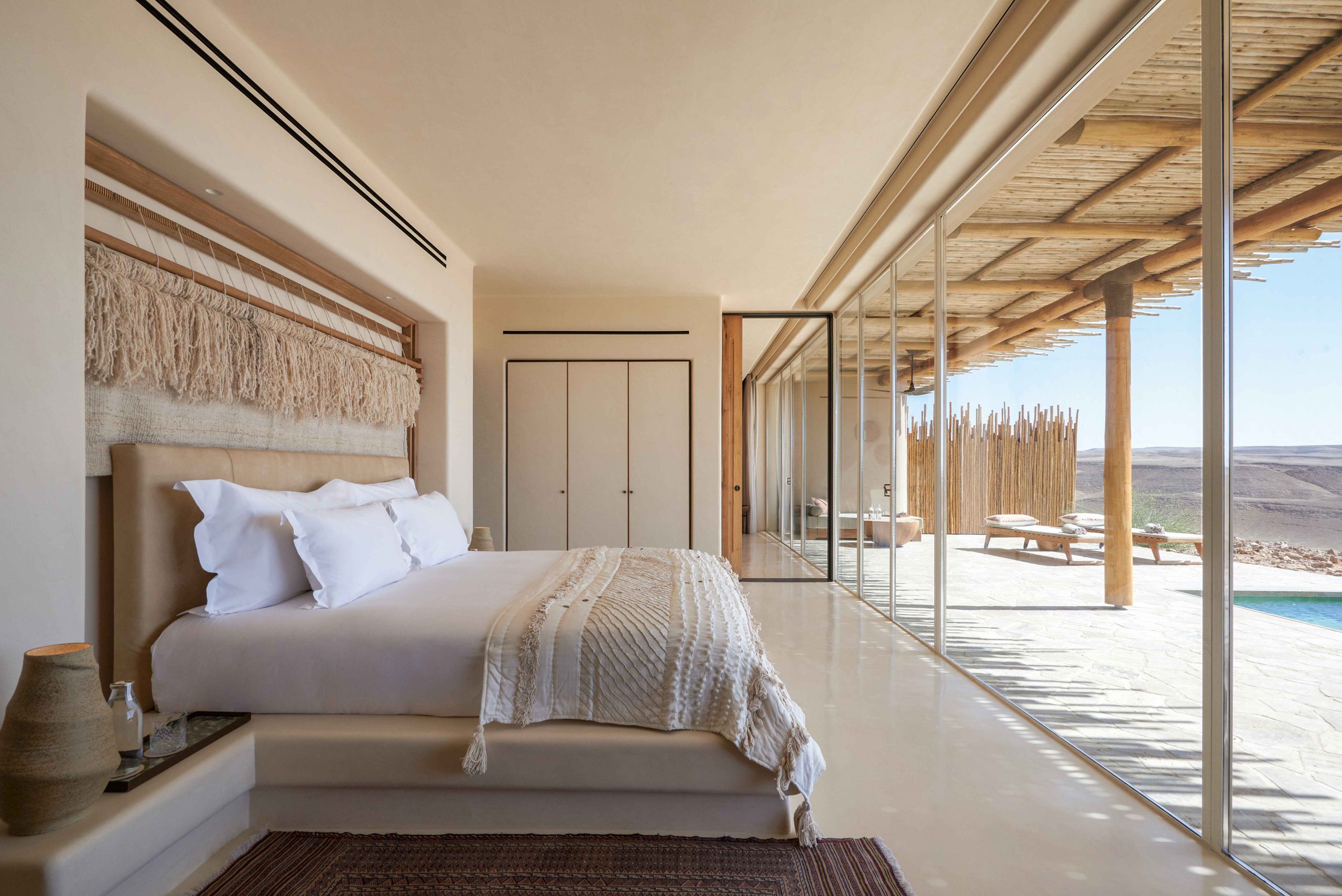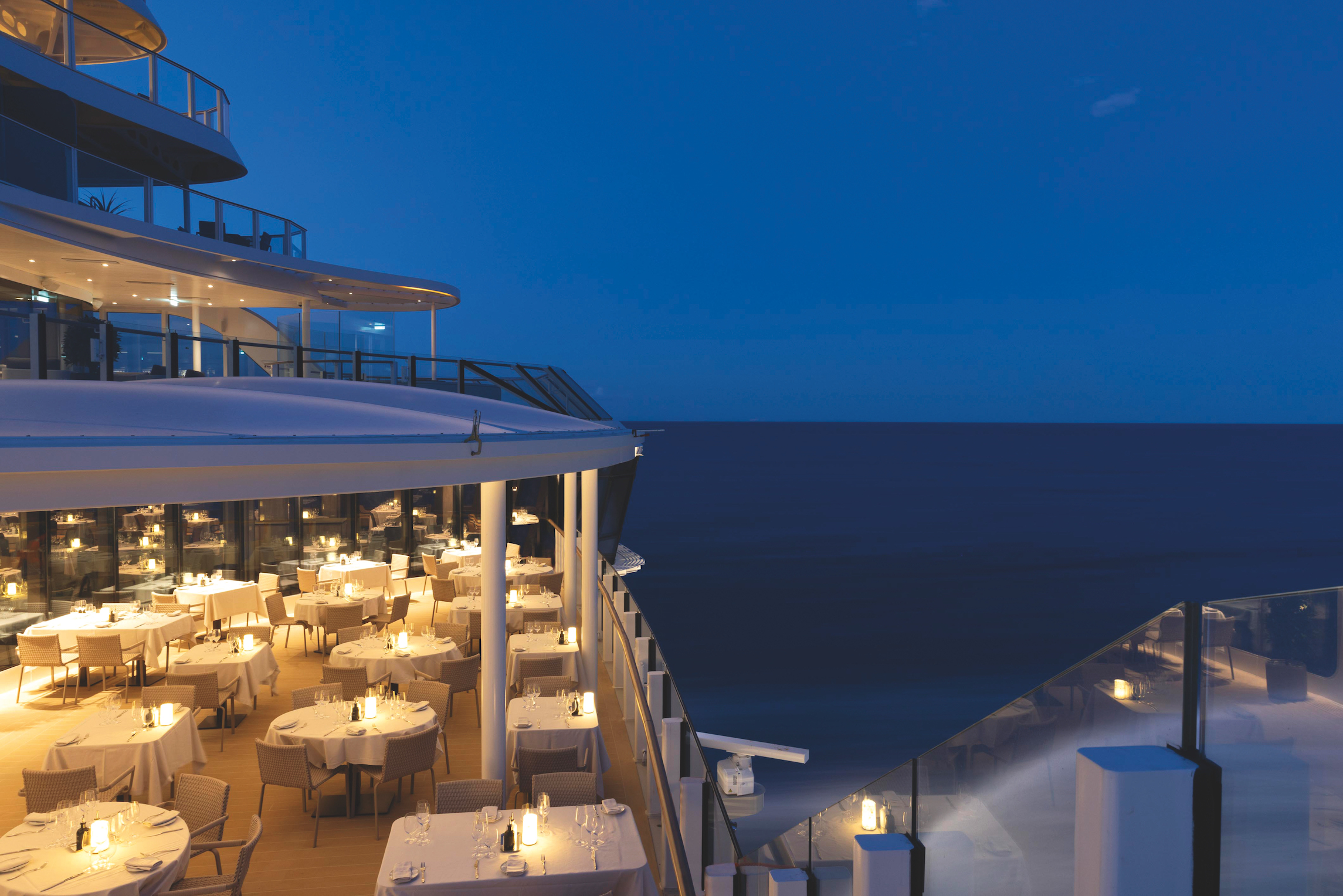In the desert overlooking Israel’s Arava Valley, Six Senses Shaharut offers undreamed of isolation and tranquillity, writes Noga Tarnopolsky.
It is difficult to overstate the remoteness of Six Senses Shaharut. At one point, three hours into my four-hour drive south from Tel Aviv, I stop for a moment to take it all in: the asphalt ribbon of road stretching as far as the eye can see in both directions, the sparsely scattered acacia trees, the desert brush, a few electrical wires slung between tall wooden posts, the occasional lark – and nothing else.
As the drive extends towards the Red Sea, you may find, as I do, that you begin shedding parts of your urban exoskeleton. The Negev desert and the Arava valley – through which the Silk Road wound its way from China to Europe, where the Nabateans built their kingdom and King Solomon mined copper – are streaked with red, green, yellow and mauve mineral deposits.
Arrival at Six Senses Shaharut demands a leap of faith: at an unmade junction in the middle of nowhere from which there are neither visible buildings nor signs, you swerve left onto a dusty road and, after a few sandy undulations, find yourself in what feels like the open mouth of a large shell on another planet.
At reception, Shaharut’s youthful, smiling hosts ply me with ice-cold hand towels, small glasses of well water drawn on site, and tiny, restorative petits fours created by the resident chef.
After checking in, I’m taken into a small antechamber to choose a seed from an assortment collected by the hotel’s gardeners. Basil? Sumac? I opt for Abraham’s balm, a pink-flowering tree. My host then produces a Nespresso capsule filled with potting soil, into which I press my seed, which is then sent off to be planted in the organic garden. It’s a ritual to symbolise that a part of me will remain here after I leave.
The first thing you notice at Shaharut is the purity of the air, which, in the Arava desert plateau – probably the unlikeliest location ever imagined for a high-end spa hotel – is as warm and comforting as a longed-for embrace.
Next, you begin to assimilate the silence, a thick, cushiony hush. And Six Senses has gone to extraordinary lengths to respect the desert’s topography, including illuminating its paths with tiny, downward-facing lights that do not pollute the night sky.
It took 12 years to excavate the rock face and for builders to create the slopes and hollows of a design conceived to disappear into the hilly terrain. Expert artisans from the West Bank city of Hebron used rubble left by the diggers to construct the dry-stone walls that form the resort’s protective contours.

Shaharut is laid out like a small, sand-coloured estate, with the reception at the bottom of the hill, surrounded by a date orchard, camel stables and the organic garden. The low-rise rooms and communal spaces are scattered around the complex in clusters, preserving an overarching feeling of privacy and seclusion. Nothing is very far from anything else, and walking in the breeze along the estate’s paths is relaxing, but Shaharut’s fleet of noiseless electric buggies is available for rides.
The desert has influenced the look of the bedrooms – all of which are suites, and come in varying shades of sand and feature bedspreads handmade in Turkey by Tissum, and cushions in patterns inspired by the Yemen, Palestine, Morocco and the local Bedouins. You’ll also find a yoga mat, a Panama hat to protect you from the sun and a beautifully sanded-down pale birch walking stick to take on hikes.
Every high-ceilinged room has a desert-facing terrace, positioned for maximum discretion, so you can see all the way to where the horizon touches the sky but no one can see you. Some have plunge, or infinity, pools. Mine, a relatively modest but still spacious, split-level affair, has an immensely comfortable central bed with steps leading down to a seating area which opens out onto our terrace. There is a television loaded with all the major international channels for those who can’t do without. But it’s hidden behind a cream-coloured tapestry, hand-loomed by local artisans from the village of Shaharut.

As I sit on my terrace at nightfall, after my eyes have adjusted to the darkness, planets and constellations emerge in the sky. From one direction comes the howl of a fox. From another, a red dragonfly momentarily swoops in, landing on the table before vanishing. Amateur astronomers come here to see the stars and meteor showers from one of the least light-polluted sites on Earth. Most nights, Shaharut offers guided stargazing.
In the spring and the autumn, bird-watchers flock to the desert to view an estimated 500 million migrating birds, from purple herons to starlings, sparrows and finches, which cross Israel on their way to Europe or back to Africa. And the hotel offers guided birding throughout the year.
The luxury is lavish but thoughtful and never vulgar. Stone, wood, metal and glass abound. Even the rocks in the empty tracts along the paths you use to walk to dinner, or to a bar, have been arranged so that at night their angles reflect the light of the moon. The resort’s sumptuous breakfast buffet is served on a table made from the bark-wrapped stump of an ancient olive tree.
Midian, Shaharut’s largest restaurant, serves desert-goat cheeses, Red Sea fish and greens handpicked in the onsite organic garden that day. One of the simplest dishes, a fillet of beef from the herds that wander freely on the Golan Heights, was also one of the most delicious.
It is not all solitude, though. The big outdoor pool and its adjoining bar are Shaharut’s most convivial sites. There’s a nightly drinks party at the Jamila bar, where house wines produced by Yaakov Oryah, one of Israel’s premier winemakers, are liberally poured as the sun sets into what looks like a molten desert sea. Alternatively, you can sip cocktails or freshly squeezed juices while perched on a stool at the pool bar, or eat as you dangle your feet in the water or stretch out on one of the daybeds.
The vaulted indoor pool, excavated out of the rock, is one of the most meditative spaces. The hotel’s spa complex includes hammams, saunas and steam rooms and, in addition to the traditional spa menu of services, Shaharut offers a wide range of locally inspired treatments. For a massage, in a grotto-like treatment room, I opt for – and would highly recommend – the Cleopatra-worthy camel-milk-and-CBD cream, made on the premises, which leaves me feeling floaty and serene.
The next day, I have a soothing facial, using products made by French all-natural skincare brand Biologique Recherche. It is as pleasing as the massage, if less rooted in the rocky soil of the desert. A resident Ayurvedic doctor offers medical assessments and treatment plans. A team of yoga teachers gives classes in Iyengar method, pranayama and aerial yoga in an open-sided yoga room overlooking the valley. Separately, there’s also a well-appointed gym and a personal trainer.

At every turn, Shaharut surprises with picturesque nooks or seating by panoramic windows to give guests a place to read quietly or to contemplate their surroundings.
Shaharut’s director of sustainability, Liraz Amar, is a lawyer with a master’s in environmental studies – they take such things seriously at the Six Senses. She leads us on a sustainability tour with the hotel’s all-female herd of camels walking alongside – you are not encouraged to ride them lest the queens of the desert are turned into beasts of burden. Less romantically, though no less importantly, you can even visit the resort’s plastic-free water-bottling plant.
For most people, a visit to Shaharut is likely to be a first encounter with this remote desert. So it is for Shulamit Almog, a Haifa University professor of law, who I get chatting to at a basket-weaving workshop as we sit threading fresh palm fronds with our hands. Almog, an internationally renowned expert on gender and the law, says she is “completely enthralled”.
Shaharut means “the moment before dawn” in Hebrew and it does feel like this latest addition to the Six Senses portfolio marks a significant new day for luxury travel in Israel.
* Prices start at A$1241 per night for a Six Senses Suite, which is 58 square metres and offers views of the desert and valley. sixsenses.com/en/resorts/shaharut








